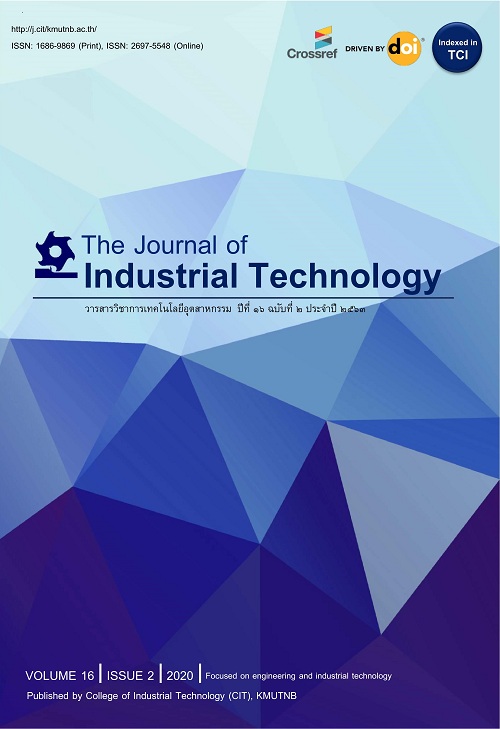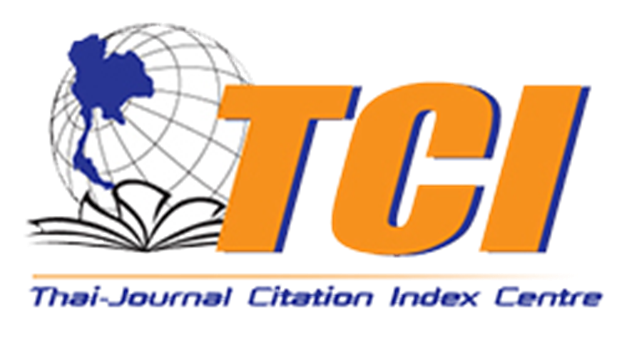Efficiency of Modified Grease Trap for Domestic Wastewater Treatment
Abstract
Abstract
The objective of study was to investigate the efficiency of modified grease trap for domestic wastewater treatment. The study was focused on a media arrangement (5 cm diameter of Mon brick: 1 cm diameter of gravel: 3 cm diameter of Mon brick) with the different media ratios (1:1:1, 1:1:2, 2:1:1, 1:2:1, 2:2:1, 2:1:2 and 1:2:2) in a modified grease trap. Also, it was focused on the optimal factors; flow rate (2-5 L/min) and hydraulic retention time (HRT) (4-10 hrs) on treatment efficiency of grease trap. The result revealed that modified grease trap (1:1:2) for domestic wastewater treatment was generated in the highest efficiency. Suspended solid (SS), fat oil and grease (FOG) and biochemical oxygen demand (BOD) removals were up to 80%. Moreover, it was found that the optimal flow rate and HRT for simple and modified grease (1:1:2) traps were at 2 L/min and 10 hrs. At the optimal condition; SS, BOD, and FOG removals were over 87, 70, and 87%, respectively. In a comparative study of treatment efficiency between simple and modified grease (1:1:2) traps, it showed that, under the same condition (2 L/min, HRT varied at 4, 6, 8 and 10 hrs), a modified grease trap generated the higher efficiency of SS, FOG and BOD removal than that of a simple grease trap.
Keywords
Refbacks
- There are currently no refbacks.






